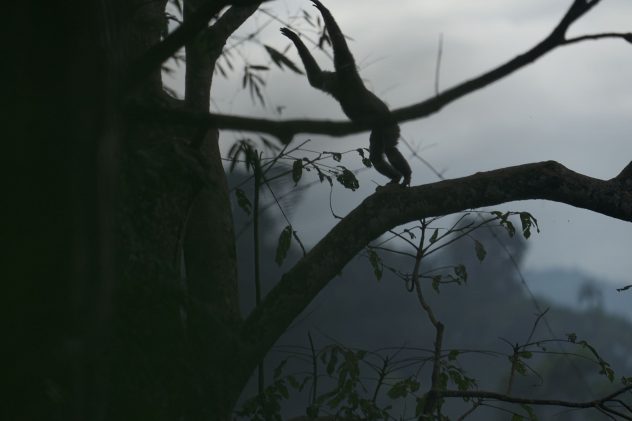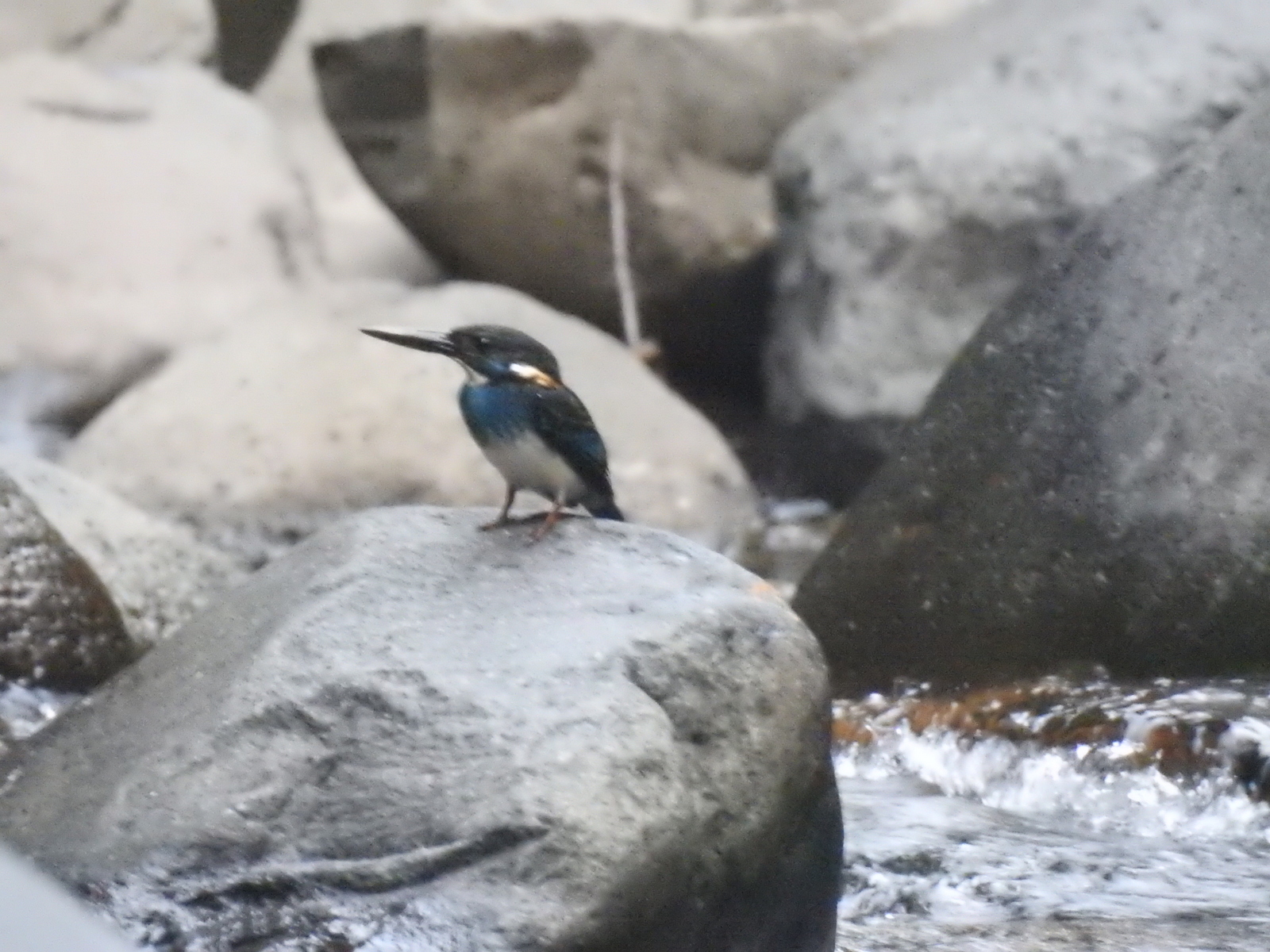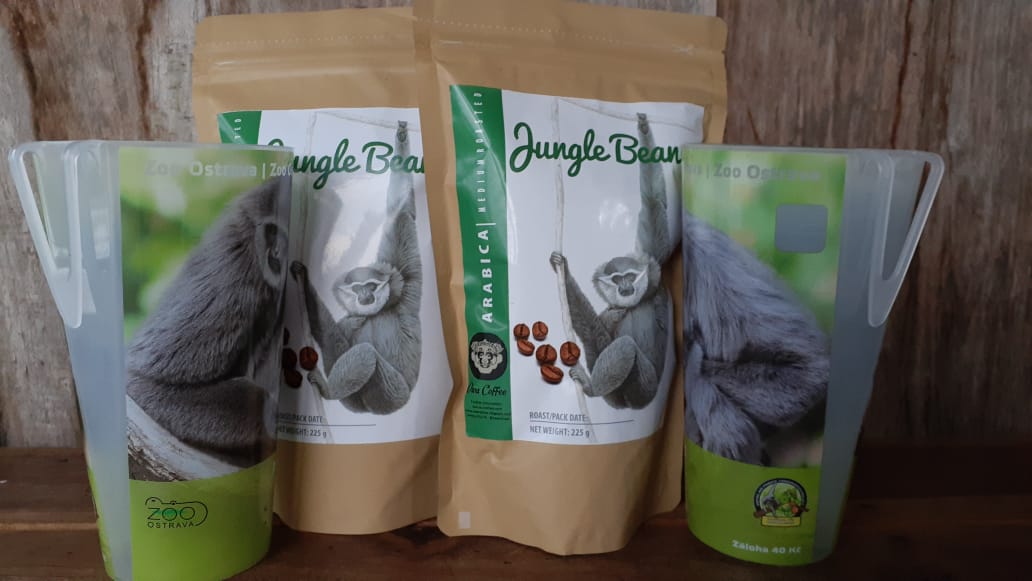Overview
In January 2020, against the backdrop of a nascent pandemic, work continued unabated to organize conservation activities targeted at primates, gibbons in particular. The gibbons in Central Java and the Mentawai Islands form the twin foci of our conservation activities and have provided us strong motivation to step up conservation at the site level.
Mentawai – Education & ecotourism
In South Siberut, we initiated a campaign centered on wildlife photography in collaboration with Uma Mentawai Malinggai (UMM), an organization dedicated to preserving local folk art. The campaign aimed to promote photography as a means of preserving culture and biodiversity, and to equip UMM members with new skills. We armed two UMM members with cameras that they used to document local fauna and natural history, and encourage the local community to part with non-traditional hunting practices.
This program has delivered some tangible results, with a book on the birds of Mentawai and another on Mentawai primates having been published. Active collaboration with local residents has also encouraged them to take ownership of their natural environment by serving as ‘paraconservationists’[read report here]. As such, the message we spread emphasized the importance not only of primates, but also of other components of Mentawai’s biodiversity and the value of indigenous culture.
The activities scheduled for January were intended to promote the conservation of primates in Mentawai through primate-watching tours. A promotion had in fact already been launched on a dedicated website (https://wildgibbonindonesia.com/ and a test run had likewise been conducted blending endemic primate species with highlights of local culture. Read the trip report here. However, after a promising start, progress has slowed since March 2020 owing to the pandemic. Being mainly targeted at tourists from abroad, the project has been affected by cancellations of all tours booked at the end of 2019.
Central Java – Cancelled visits
In March 2020, we had been due to receive staff from the Ostrava Zoo and a representative of the Czech ambassador to Indonesia at our project activities in Sokokembang and the village of Mendolo. Both sites play a crucial role in our Coffee and Primate Conservation Project. However, shortly before the event was due to start, an official notice came in from the Regent of Pekalongan that gatherings were to be banned to halt the transmission of coronavirus. We were of course very disappointed, but are glad that we did the right thing by calling the activities off. In the end, we only managed a brief meeting with representatives of the Ostrava Zoo in Pekalongan, who immediately thereafter returned to Jakarta.
Of all our shade coffee and primate conservation projects in 2020, the most badly hit by the pandemic was our collaboration with the Singapore Zoo. Sales of our forest-friendly coffee had ground to a halt there because the zoo café, which carried the product, was forced to close by COVID-19. Our stock of coffee beans piled up in warehouses in Yogyakarta and in the Petungkriyono homes of the growers near the gibbon forests.
Research & networking
May 2020 marked a milestone in the conservation of the Kloss’s gibbon (Hylobates klossii), with a survey of this Mentawai endemic having been published in the journal Biodiversitas – Journal of Biological Diversity. Findings were first presented at the Indonesian Primate Congress in September 2019, organized by Indonesian Primatological Society.
June 2020 saw the commencement of two important research projects in Sokokembang. Both were spearheaded by tough and dedicated women who feel more at home in the forest and among the communities who live off it than as homemakers without a voice of their own. Pressing on despite the challenges posed by the pandemic, the first is Nur Aoliya from Bogor Agricultural University who studies the Silvery gibbon’s vocalisation behaviours in the mountainous landscape of the Dieng region. You can find Aoliya’s story here, recounting her search for the diva of the rainforest in the districts of Batang and Pekalongan. The second, Yenni Rachmawati from Airlangga University, researches the Blue-banded kingfisher, one of the world’s most endangered birds which the SwaraOwa team had found as new record in 2018. Both these research projects are funded by the annual Kopi Owa scholarship program as part of the Coffee and Primate Conservation Project in Central Java. As of early 2021, these projects are still ongoing.
Starting where we left off
As we lament no longer being able to travel as we please or meet whoever we want to, perhaps the most important lesson to learn from this global pandemic is that not coexisting with the natural world will only lead to severe socio-economic problems in the long run. Promoting cultural practices that emphasise sustainable consumption and production must be made a topmost priority, even if only on a small scale at first. After all, big things usually have humble beginnings.
Initially beset by numerous delays due to the pandemic, November 2020 saw our work in Mentawai slowly being resumed, targeted at conserving the endemic Kloss’s gibbon. As the erosion of local culture has led to unsustainable hunting practices and the loss of much forest, this work crucially includes providing local teachers training and content on nature conservation and Mentawai traditions.
Not all our activities were publicized on the SwaraOwa website or blog due to limited time for writing. One of the most important achievements for gibbon conservation in Pekalongan Regency was marked by the provincial government initiating a multi-stakeholder forum centered on the management of the Petungkriyono forest area [the initiation was started by this writing]. Although relevant work had already started in 2019, it was only with this forum that a concrete plan emerged, proposing around 5,173.80 ha to be managed collaboratively as an Essential Ecosystem Area.
Looking towards the future: strengthen economy, culture and nature conservation
The pandemic, giving experience of livelihood program activities with one priority commodity to influence sustainable production and consumption in gibbon habitat’s is very risky. and now there is also other potential commodity that SwaraOwa is developing in the habitat of gibbons, i.e stingless bee and it’s product development, we started in 2017 and now honey production has begun to stabilize even though it is limited, and motivate the community to involved in wildlife friendly farming practice, colony replication not only multiplied bee hive boxes but also became the start of a social, economic and ecological movement around the forest.
We closed 2020 with the launch of Owa Bilou Coffee, a commercial project named after the Kloss’s gibbon endemic to Mentawai. It aims to further conservation work on primates, to involve local community on sustainable economic activities, especially the gibbon which is its namesake, its to trigger promoting local commodities and team in Mentawai that can be benefit for community and nature it’s self.
Thanks to all people, agency, local government in Central java and Mentawai, who involved during 2020 activities, special thank you to our donors Fortwayne Children Zoo, Wildlife Reserve Singapore, Ostrava Zoo, and Arcus Foundation.
Having bade 2020 a bittersweet goodbye, we welcome 2021 with renewed optimism and resolve.






